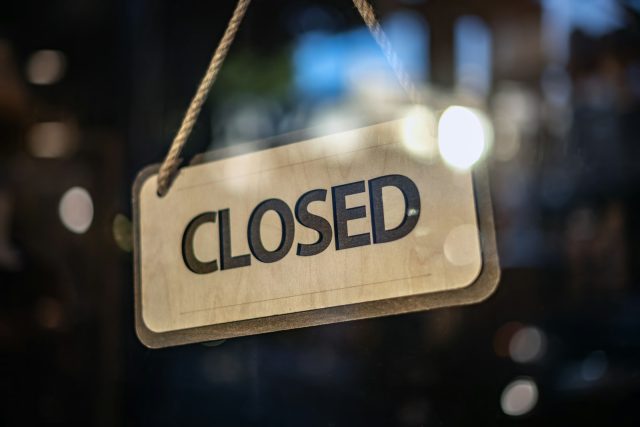
Closing a business is never an easy decision. It represents the conclusion of an important chapter for owners, employees, and stakeholders alike. However, beyond the emotional aspect lies a complex legal and procedural framework designed to ensure that a closure is fair, transparent, and compliant with the law. Understanding the legal logic behind business closure is essential for any entrepreneur or company director who wants to navigate this process responsibly and strategically.
The Purpose of Legal Frameworks in Business Closure
Every business operates within a set of legal obligations, from tax compliance to employee rights and creditor responsibilities. When a company faces closure, these obligations do not simply disappear. Instead, they shift into a structured process governed by insolvency and business law.
The aim of these laws is to ensure that assets are handled correctly, debts are settled in a fair order of priority, and no stakeholder is unfairly disadvantaged. This framework protects not only creditors and employees but also directors themselves, provided they act in accordance with their legal duties. The system is built around balance, which is ensuring accountability while allowing owners a lawful route to closure when recovery is no longer possible.
Voluntary vs. Compulsory Closure
One of the first distinctions in business closure lies between voluntary and compulsory procedures.
A voluntary closure occurs when company directors decide to close the business of their own accord. This may happen because the company is solvent but no longer needed, or because the directors recognise that the business cannot continue to trade viably. In such cases, directors can initiate a Members’ Voluntary Liquidation (MVL) or a Creditors’ Voluntary Liquidation (CVL), depending on the company’s financial position.
A compulsory closure, by contrast, is initiated by an external party, typically a creditor, through a court order. This process, known as compulsory liquidation, occurs when a company fails to pay its debts and creditors petition the court to wind it up. Both routes follow strict legal procedures to ensure that all parties are treated fairly.
Professional firms such as https://www.mcalisterco.co.uk/ guide business owners through these processes, helping them determine the most appropriate course of action and ensuring that the legal requirements are met from start to finish.
The Director’s Legal Duties During Closure
Company directors play a central role in how a business closure unfolds. Once financial distress is apparent, the law places specific duties on directors to act in the best interests of creditors rather than shareholders. Continuing to trade while knowing the business cannot pay its debts can lead to serious legal consequences, including accusations of wrongful trading.
The legal logic here is simple but vital: directors must preserve remaining assets and prevent further financial harm. They must also ensure that company records, financial statements, and creditor communications are transparent and accurate. Seeking professional advice early can protect directors from personal liability and demonstrate good faith in managing the situation.
Handling Debts, Creditors, and Assets
A central aspect of business closure is the legal hierarchy that dictates how debts are repaid. The insolvency framework defines a specific order in which creditors must be paid, starting with secured creditors, followed by preferential creditors such as employees owed wages, and then unsecured creditors.
The appointed insolvency practitioner oversees this process, ensuring that the company’s remaining assets are valued, sold, and distributed fairly. These professionals act as neutral administrators, managing all aspects of closure and providing reports to creditors and regulators.
The legal logic behind this hierarchy is to maintain fairness and transparency while maximising returns for those owed money. It also ensures that the process is properly documented, allowing for future audits and legal verification.
Employee Rights and Legal Obligations
When a company closes, employees are directly affected, and employment law provides clear protections for them. Employees are entitled to receive outstanding wages, holiday pay, and redundancy payments. If the company cannot meet these obligations, employees can claim compensation from the National Insurance Fund in the UK.
Legally, employers are required to consult with employees about redundancy and provide written notice of the company’s situation. Failure to follow these procedures can lead to claims against the directors or the company’s estate. Therefore, managing employee communication with honesty and legal compliance is not just good ethics. In fact, it is a legal requirement.
The Importance of Insolvency Practitioners
Insolvency practitioners (IPs) play an essential role in ensuring that business closures follow legal and ethical standards. They are licensed professionals trained to assess a company’s financial situation, recommend the appropriate closure method, and manage all related proceedings.
IPs take over control of the company during liquidation, ensuring that directors and stakeholders act within the law. They also handle filings with Companies House and the Insolvency Service, ensuring the closure process is fully documented and transparent.
Engaging a qualified IP early in the process can make the difference between a stressful, uncertain closure and a structured, legally compliant resolution that safeguards the interests of all involved.
Legal Records and Post-Closure Obligations
Even after a company has officially closed, legal obligations may continue for a period of time. Records of financial transactions, communications with creditors, and details of asset distribution must be retained for several years after liquidation. These documents are essential for regulatory compliance and protect directors from potential disputes or investigations.
Failure to maintain accurate records or follow post-closure procedures can lead to penalties or disqualification from holding future directorships. The law is designed to uphold accountability and integrity throughout the entire lifecycle of a business, including its end.
Why Legal Compliance Protects the Future
Understanding and following the legal logic behind closure is not just about avoiding penalties. It is also about preserving professional reputation and financial stability. Directors who manage closure responsibly often find it easier to recover, rebuild, or start new ventures in the future.
Handled correctly, closure can provide a clean financial slate. It allows business owners to learn from experience, maintain credibility, and move forward with renewed purpose. The legal system provides this structure not to punish failure, but to give entrepreneurs the framework they need to exit with dignity and compliance.








